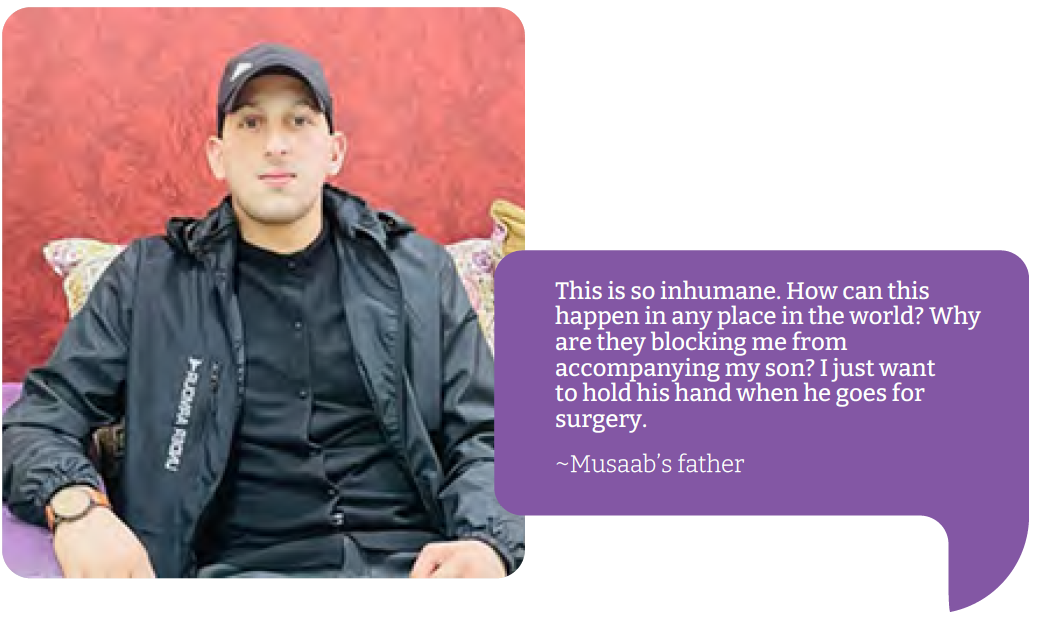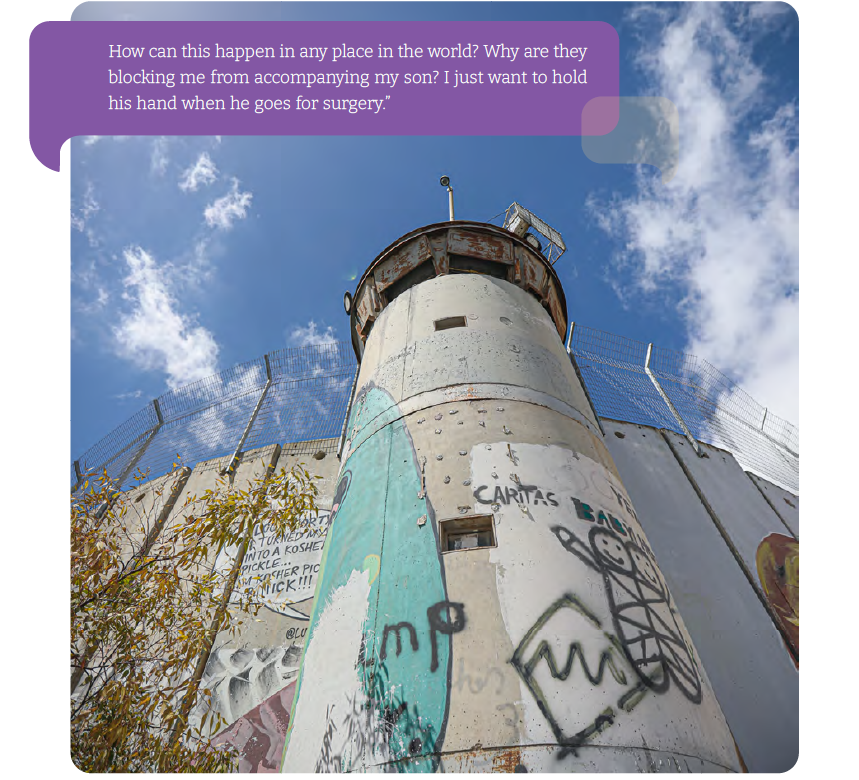Musaab, 21 years old, was in the third year of his university studies in Nablus, in the north of the West Bank.
In the summer of 2022, he was diagnosed with a cancer called a synovial sarcoma in his left ankle. To confirm the diagnosis and to guide the best approach to his treatment, Musaab was referred to Makassed Hospital in East Jerusalem for bone biopsy in June 2022, for an appointment on 6 July. Because of his West Bank ID, Israeli authorities required Musaab to obtain a permit to access East Jerusalem. He applied three times for a permit for his initial hospital appointment and was denied each time. The family were told that Musaab and his companions (different family members for each application) had been denied on security grounds. He eventually received a bone biopsy at Istishari Hospital in Ramallah, where he didn’t require a permit to reach his appointment.
Musaab was in Israeli prison from July 2020 to January 2021. It was during his detention that he started to feel pain in his left ankle. “He was given paracetamol, which didn’t help,” his father said. “He has been suffering a lot. He told me sometimes he felt as if his bone was being crushed.”
After his diagnosis, doctors considered to refer Musaab to Augusta Victoria Hospital, the major Palestinian cancer centre, in East Jerusalem. However, because he had been denied a permit to East Jerusalem previously, the doctors instead referred him to An-Najah University Hospital in Nablus, which meant he didn’t require an Israeli permit to reach care. Musaab received the chemotherapy he needed before he would undergo an operation. By November 2022, he was ready for surgery and his family applied for permits for him to reach Assuta Hospital in Tel Aviv. They wanted a private surgical consultation, to see the extent to which it would be possible to salvage Musaab’s leg. His three applications for a permit to reach two different appointments at the hospital were again denied.
Musaab’s father spoke with a doctor at Makassed Hospital to get advice on how to proceed. “He told me that repeatedly delaying surgery might cause bone erosion requiring leg amputation, God forbid.” The family had lost hope of obtaining a permit to access East Jerusalem, so Musaab’s father went to the Services Purchase Unit (SPU) of the Ministry of Health in Ramallah to request a change of destination to Jordan.
“Musaab and I travelled [to the Jordan border, the King Hussein Bridge] on 12 December. At the Bridge, we were asked to sit and wait. We waited about an hour, then an Israeli officer came out and asked us to go back to the West Bank. He said that we were both denied for security reasons. We refused to leave, and I requested to see the Mukhabarat [intelligence] officer. I insisted, telling them that my son has cancer and that he has the right to access health care. I asked them to let him go. After waiting another four hours, they decided to allow Musaab to cross to Jordan, but they made me return.” Although he crossed, Musaab missed his appointment at King Hussein Cancer Center in Amman, which had been for 12:30pm that day. The next available appointment was a week later.
“My son needs me beside him during these difficult times. We should see the doctor together so we can discuss the different options to help Musaab decide about the surgery.” Musaab’s father appealed through nongovernmental organizations Physicians for Human Rights Israel and Hamoked, as well as through a private lawyer, to get approval to travel to Jordan. He said, “This is so inhumane. How can this happen in any place in the world? Why are they blocking me from accompanying my son? I just want to hold his hand when he goes for surgery.”



